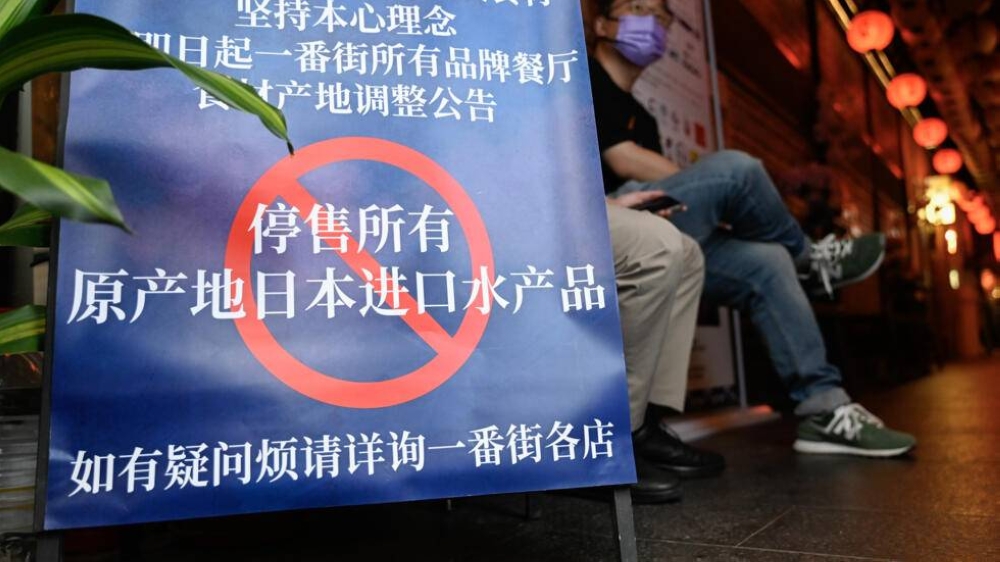Japan summoned China's ambassador on Monday to protest against a flood of nuisance calls from China to local businesses following the release of water from the Fukushima nuclear power plant.
Deputy Foreign Minister Masataka Okano told ambassador Wu Jianghao that China should properly inform the public "rather than unnecessarily raising people's concerns by providing information that is not based on scientific evidence", the foreign ministry said in a statement.
Last week, China banned all seafood imports from its neighbour after Japan began releasing cooling water from the stricken Fukushima plant in an operation that Tokyo and the UN's nuclear watchdog have said is safe.
Since then, apparently randomly chosen Japanese businesses ranging from bakeries to aquariums have received reportedly thousands of sometimes abusive crank calls from Chinese numbers.
Social media users in China have posted recordings and videos of these calls, some of which have attracted tens of thousands of likes and a large number of comments.
"Since the start of the discharge... there have been numerous phone calls and other harassment regarding the discharge that are suspected of originating from China. The situation has not improved since then," Okano told Wu.
"A number of similar incidents are also happening in China against Japan-related facilities. This is extremely regrettable and we are deeply concerned," he said, according to the release.
Japan's embassy over the weekend urged the tens of thousands of Japanese living in China to keep a low profile and not talk loudly in public.
On Monday, it said it had increased security measures outside Japanese schools and diplomatic missions in China.
According to Japanese media, there have been several incidents of stones and eggs being thrown at Japanese schools.
Japan has begun releasing more than 500 Olympic swimming pools' worth of wastewater from Fukushima into the Pacific, 12 years after a tsunami knocked out three reactors in one of the world's worst atomic accidents.
Plant operator TEPCO says that all radioactive elements have been filtered out except for tritium, levels of which are within safe limits.
Test results since the start of the discharge have confirmed this, according to Japanese authorities.

